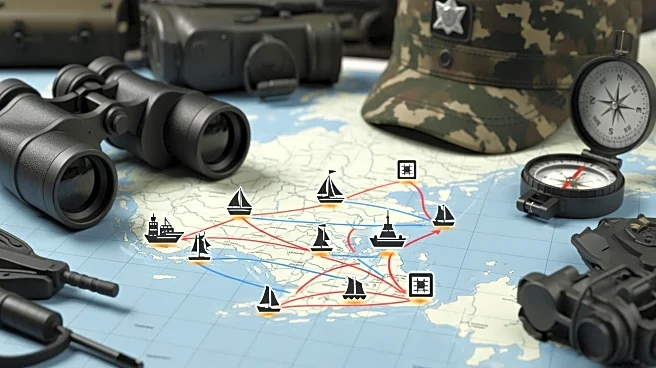What's Happening?
In the event of a conflict with China, the US Army could target Chinese ports to disrupt military and economic activities. However, an Army National Guard officer, Capt. Micah Neidorfler, argues against
this strategy, suggesting that preserving Chinese maritime infrastructure could be beneficial post-conflict. The US Army possesses long-range munitions capable of striking Chinese ports, but the potential economic repercussions and the need for postwar trade restoration make this a complex decision.
Why It's Important?
Targeting Chinese ports could have significant economic and geopolitical consequences, potentially disrupting global trade and harming the US economy. The decision to strike such infrastructure would require careful consideration of the long-term impacts on international relations and economic stability. The debate highlights the challenges of military strategy in a globalized world where economic interdependence complicates traditional conflict scenarios.
What's Next?
The US military may need to develop strategies that balance military objectives with economic considerations. This could involve targeting specific components of ports to minimize long-term damage while achieving strategic goals. The discussion also underscores the importance of diplomatic efforts to prevent conflict and manage tensions between the US and China.
Beyond the Headlines
The potential targeting of Chinese ports reflects broader questions about the role of the US Army in a Pacific conflict and the implications of military actions on global trade. The situation highlights the need for comprehensive strategies that consider both military effectiveness and economic resilience.











